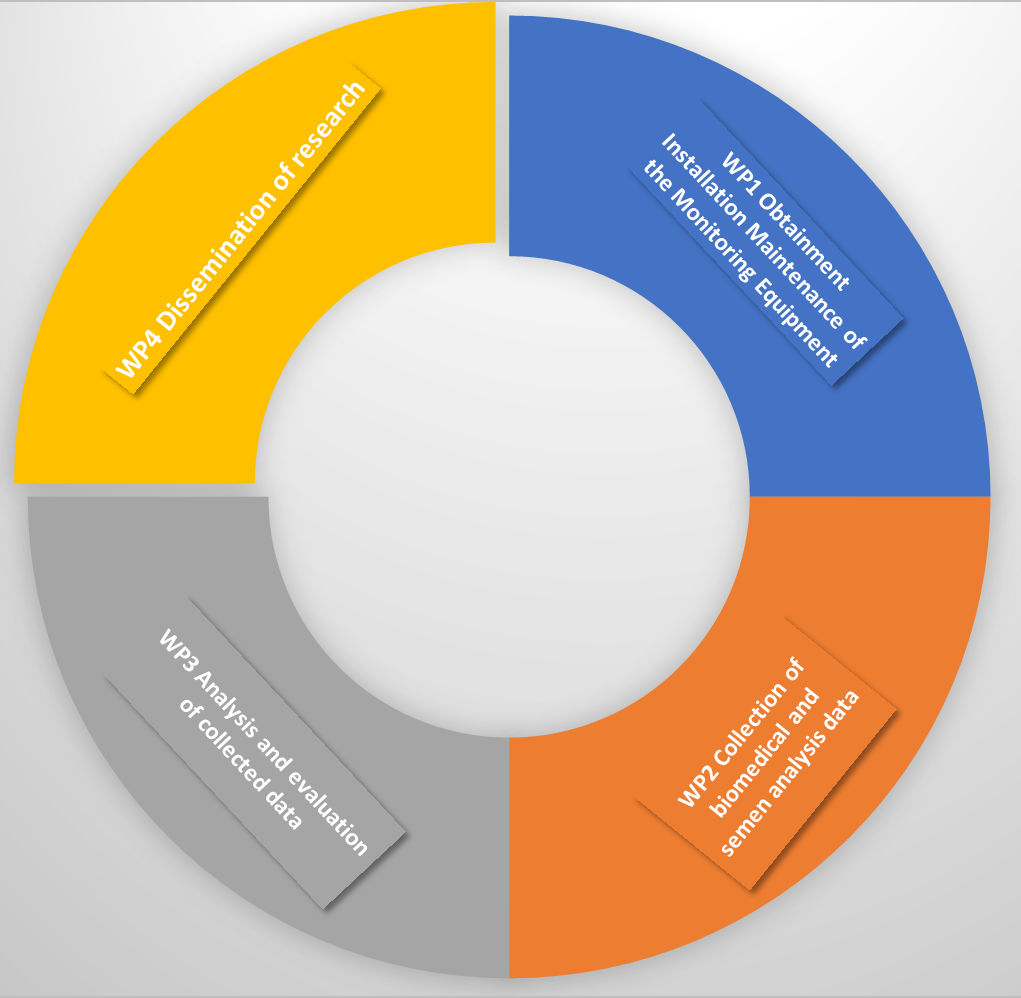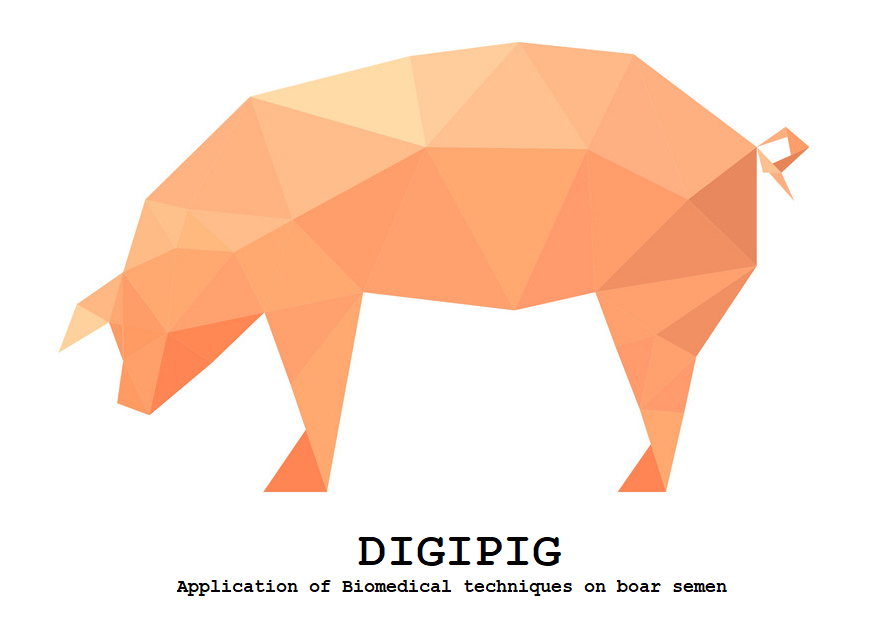Scientific methodology & novel aspects
The proposed research project will be conducted in collaboration with a pig farm of 400 sows capacity in Pieria Region, Greece. Five crossbreed active in AI adult boars (2-3 years old) will be included in experiments. Concerning the ethical issues, no drugs’ administration or any painful/stressing handling of the animals will be applied. The study will last 24 months, while the experiments will last all over a year (12 months), including the seasonal infertility’s stress effect. Before each semen collection, special collars equipped with sensors (accelerometer, gyroscope, magnetometer, electrodermal sensor) will be placed on the animals’ body for recording of:
- number of circular movements around the dummy and mounting attempts on it before the semen collection
- the orientation of the boar approaching the dummy and the repeatability or not of movements with or without the same direction,
- skin’s electrical conductivity during ejaculation.
A thermal camera will be placed at a fixed position in the semen collection pen aiming to record animal’s body temperature and the extent of salivation around the mouth, which will be defined by the local reduction of skin’s surface temperature due to increased evaporation. At the same time, a saliva sample will be taken by a rope’s mastication, to measure the concentration of cortisol (stress indicator) by the enzyme-linked enzyme-linked immunosorbent assay (ELISA).
Moreover, one more thermal or visual camera will be positioned to the semen collection pen to record the number and the intensity of the scrotum contractions. The recorded pictures will be further processed by the appropriate software.
The collected data will be related with examined sperm parameters of the respective semen sample. The sperm rich fraction from each ejaculate will be collected and semen volume, sperm concentration, motility and viability will be evaluated in the farm’s laboratory. After the initial evaluation, the semen samples will be extended (30x106 spermatozoa/ml).
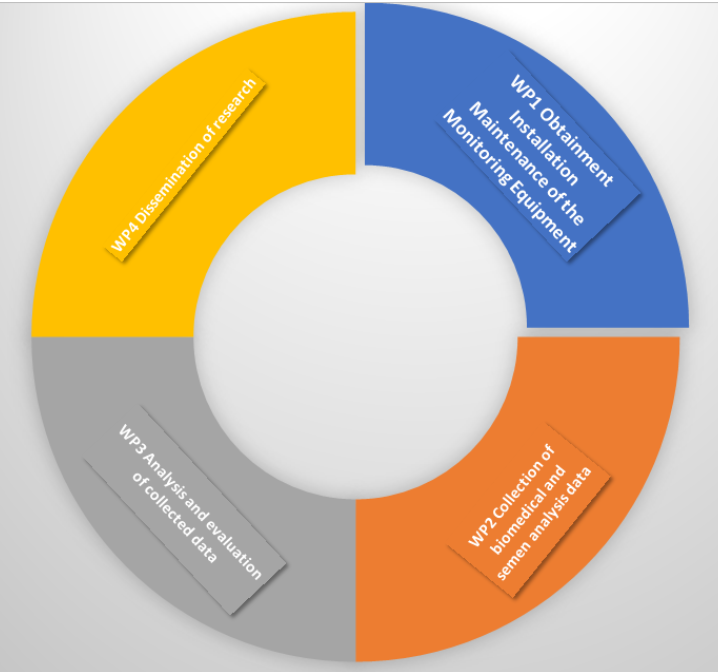
WP1
Obtainment, installation and maintenance of the monitoring equipment
The objectives of WP1 are the obtainment, configuration and maintenance of the equipment that will eventually be installed on boars.
Tasks:
- Specification and obtainment of monitoring equipment
- Laboratory testing of monitoring equipment
- In situ installation and testing of monitoring equipment
- Maintenance of monitoring equipment
The milestone for this WP is the installation of the monitoring equipment and the chech that is fully operational in situ.
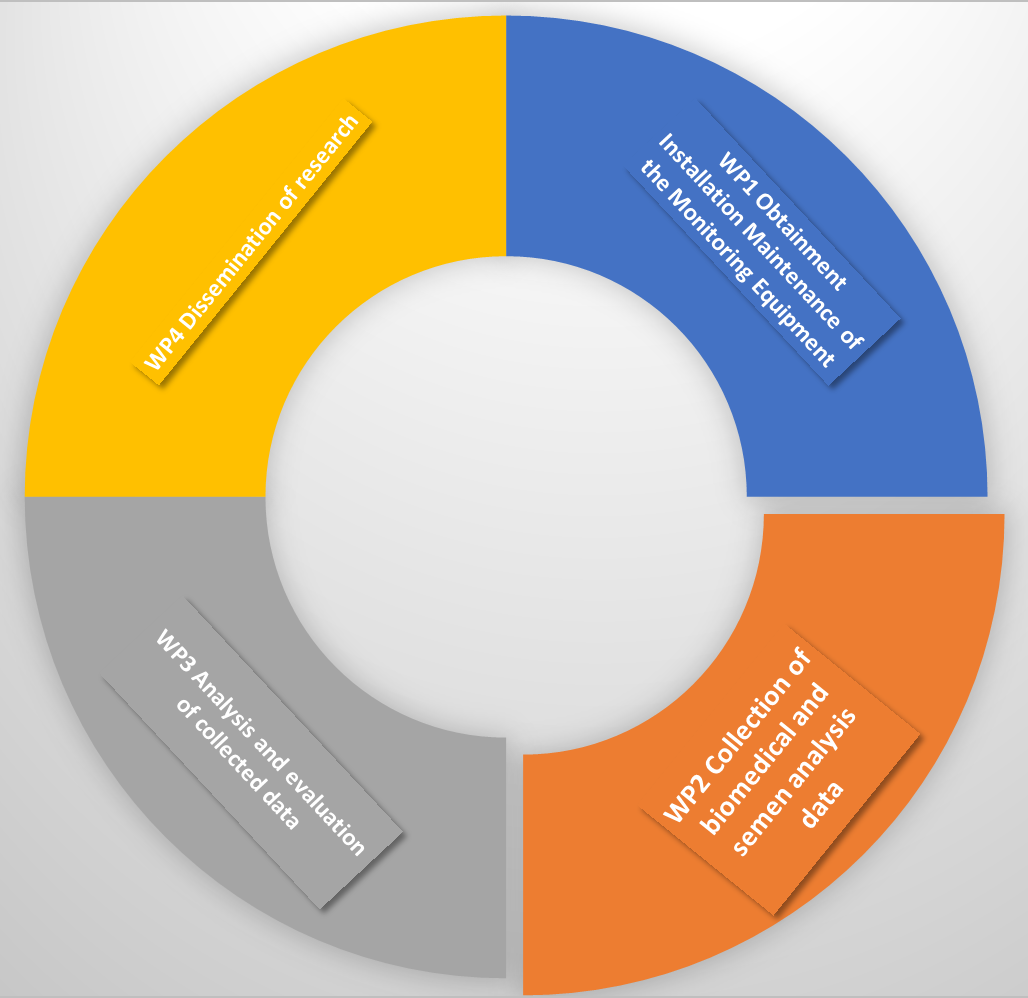
WP2
Collection of biomedical and semen analysis data
The objective of this WP is the collection of the data from the animals.
Tasks:
- Registration of measurements from monitoring equipment
- Collection and evaluation of semen samples
- Animals’ care
The milestone for this WP is the completion of animal experimentation.
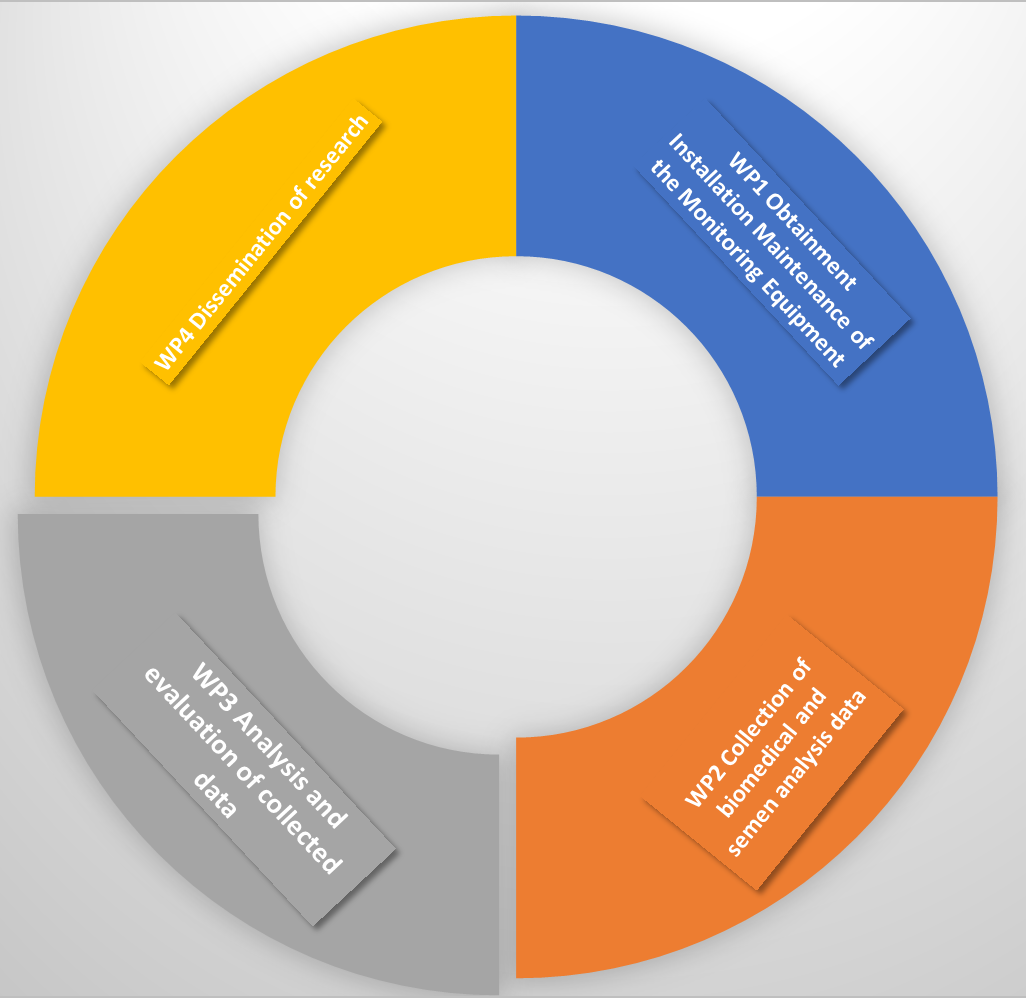
WP3
Analysis and evaluation of collected data
The objective of this third WP is to statistically process the collected data, find possible correlations and, ultimately, identify “bio-markers” for the objective assessment of boar field fertility.
Tasks:
- Feature extraction from biomedical signals
- Statistical analysis of collected data
A milestone for WP3 will be achieved with the identification of “bio-markers” for the objective assessment of boar field fertility
